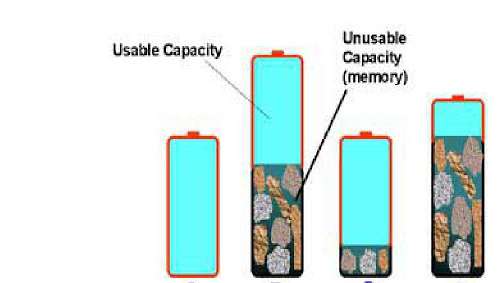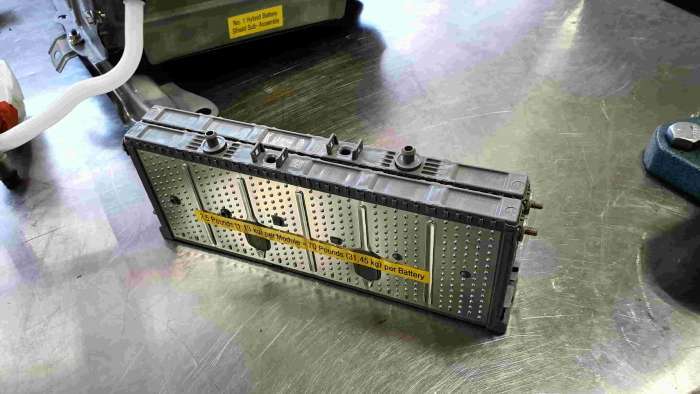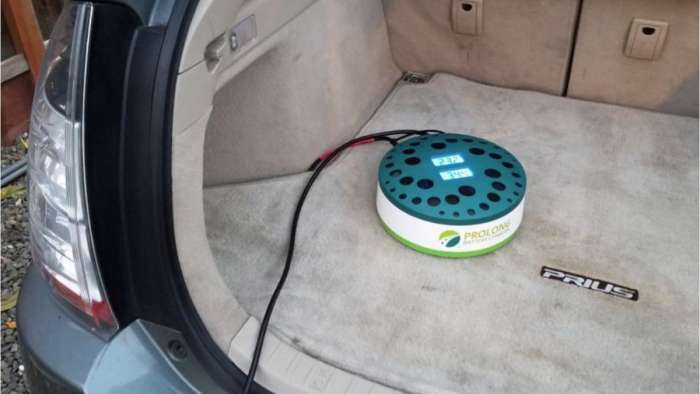If you have read any of my previous articles on hybrid batteries or hybrid battery repair, you already know how critical taking care of your hybrid battery is. The thing is, most consumers have no idea why their battery fails in the first place or what the symptoms are before failure.
We are taught that you drive your Prius, and if the battery fails, you have three options. Get it covered under warranty, replace it with a new or remanufactured one, or get a new car. The sad part is this, very few Prius owners get their battery covered under warranty. Once battery failure occurs, you only have two rather expensive options replacement of the battery or the car. Neither of which a hybrid owner wants to have to deal with.
What if there was a solution to this problem? What if we could double the expected life of our hybrid battery just by learning a few simple things about it? The good news is this is 100% possible, and it is available to Prius owners everywhere.
I am so passionate about hybrid battery maintenance that I am literally, as of this moment in writing flying down to Brazil. I have been asked to be a guest speaker at an automotive conference, my topic? Hybrid battery reconditioning and maintenance. Why? Because it is possible to keep your battery healthy for longer, and it is very affordable.
I want to give you some free knowledge here that I know will benefit every Prius owner on the planet. Then you can decide if it is right for you. Here is what you need to know about double the expected life of your hybrid battery.
What Causes Toyota Prius Hybrid Batteries To Fail?
First, we need to do some science here. Do not worry, there is no test on this, and I am going to give you all the answers you need. The science behind what makes our Prius go is the battery. The battery is made out of something called Nickel-Metal Hydride or for short NiMH.
Remember having an RC car as a kid? Then you probably remember Nickel Cadmium or NiCad batteries. I hated it when my truck only gave me 5 minutes of playtime after I charged it for hours on end. The thing was, I never knew what caused the issue, so I never knew how to correct it. The same thing happens with our Prius' and other hybrids.
Think about it like this. Visualize a bucket, in a river, filling with water. The water flows in the bucket, it fills up, and then the liquid flows out. If we were to go and pull the bucket from the river and pour it out, we would have, however, many gallons of water available to us from that bucket. Battery capacity is similar to this principle. In our hybrid batteries, we have a set level of capacity or storage that the individual cells can hold. If we start with a 5-gallon bucket, we have a lot of available capacity for use.
Now imagine that bucket staying in the river for years on end. What would happen? Believe it when I tell you that over time, that bucket would start to fill up with silt or debris that would begin to decrease the capacity or available storage of the bucket. It is the same idea as our Prius traction battery. This process is called voltage depression or crystal formation, and it is 100% going to happen. That is the bad news, battery failure is inevitable and will happen, it is just a matter of when.

Luckily, we do not have to use NiCad batteries in our Prius, but we do have NiMH. This battery technology was hailed at the solution to the battery memory problem that plagued its predecessor. The thing was, the technology was still so new when Prius and Insight came out, we had no idea that we would be facing similar challenges with this new battery. Now all these years later, we are facing a memory effect. Now we know why our batteries are failing.
Ok, great, so every hybrid owner that has NiMH batteries is going to have a failure, thank you, Pete, I guess? You are darn tootin' you should be saying thanks because I am about to drop some seriously sweet knowledge on you about what can be done to postpone the problem for a much longer time.
The Secret The Dealers Do Not Want You To Know, Hybrid Battery Maintenance
Here is the secret that every Toyota dealer will never tell you about your NiMH hybrid battery. It is 100% serviceable. I know you are asking yourself the same question that I did when I was first learned about this concept. How do you service a hybrid battery? Does the Prius not maintain it by itself?
Excellent questions let us unpack this. When Prius and Insight first came out, there was not much data for these batteries over a long time. It was not until failures started occurring that people began to question why they were failing. Do you know why people began to question it? Because it cost a small fortune to have it replaced, that is why.

Prius and all other hybrids that are using NiMH have software built into the BCM (battery Control Module) that only allows the battery to cycle anywhere from 20 to 80 percent state of charge. In doing so, this keeps the battery chemistry happy, and we can see a longer life out of it. The bad news is that it causes voltage depressions or "silt in the bucket."
Okay, I get it, silt in the bucket, so now what? We get a reconditioned battery and drive the car. Yeah, you can do that, but ask yourself this question. What if you did not have to replace the battery for even longer than expected? Would that not be worth looking into? Of course, it would.
This is precisely what drove the owner of Hybrid Automotive to find a solution that is giving Prius, Insight, and other hybrid owners freedom from battery replacement. He did the hard work, figuring out how. How batteries fail, and what can be done to repair and maintain them. He took what the repair companies were doing and packaged it in a ridiculously simple package that any hybrid owner can use. It is the Prolong Hybrid Battery Reconditioning package only available through Hybrid Automotive.
How Can The Prolong System Help My Prius?
Excellent question. Let me ask you one first. How long do you expect you will own your Prius? Five years, ten years, longer? If you want to own a Prius, you need this tool.
The complete system is an easy install of a wiring harness and a weekend recondition on your battery two times a year. The system, once installed, works with your aging battery to help remove the crystal formation/voltage depressions and restore lost capacity.

Remember the bucket? What if you could dip your hand in the bucket and clear out the silt? Would you then have more room for water? Heck, yes, you would. So, what if periodically you went in and kept clearing out as much silt as you could from the bucket? Do you think you would have more available capacity at the time you need it most? Of course, you would.
This system does just that, and it is incredibly affordable. The whole system is less than half the cost of a remanufactured hybrid battery for your Prius. You are welcome. I just saved you thousands of dollars over the lifetime of your Prius.
Where Can I Get This System For My Toyota Prius?
If you are interested in learning more about this product, please let me know. Find me on social media, send me an email, I will gladly explain anything unclear to you about how this system can take care of your Prius or other hybrid vehicles.
If you have seen the value already and want to get started, take a look here that will ensure you will get a kit that fits your Prius.
Key Take Away From Today
Hybrids like our Toyota Prius' that use NiMH will get a memory effect; it will happen. When your battery fails, it will be expensive, and no just replacing one module is not a lasting repair, it is a band-aid best. The pack will be unbalanced, and you will be out more time and more money. Both of which no one wants.
Ask yourself these questions, though. If all this product did was help you maintain peak battery performance, would it be worth it? If all that happened was that you doubled the expected life on your hybrid battery, would it be worth it? Of course, it would be. We both see the value in it. We both know it is worth the relatively small investment that will pay for itself within the first time you use it.
You can slow the voltage depressions drastically by using the Prolong kit from Hybrid Automotive. It is proven to recover and restore capacity in your hybrid battery. Some batteries are not great candidates for reconditioning, but if your Prius has not failed yet, you are an even better candidate. Preventative maintenance will, for sure, keep your battery running longer and give you many more miles of trouble-free driving.
Again, feel free to reach out to me if you have questions, I am more than happy to help any Prius or hybrid owner get the most out of their car. I own two hybrids myself and have the kit installed on them. I am entering a long term study with a 2nd generation Prius to see how long I can keep the original battery in service. It is going to be exciting.
Thank you so much for reading. This is a long but necessary story. I do it because more hybrid owners need this product. We need to maintain our battery on our cars, and we need to keep them on the road longer.
Be sure to check out my other story, Three reasons you should run Nokian snow tires on your Prius Prime.
Watch the 2021 Toyota RAV4 Plug-in Hybrid Prime video presentation and click to subscribe to Torque News Youtube channel for daily automotive news analysis.
Peter Neilson is an automotive consultant specializing in electric cars and hybrid battery technologies. He holds a Bachelor of Science in Automotive Service Technology from Weber State University. Peter is also an Instructor of Automotive Technology at Columbia Basin College. Peter can be reached on Linkedin and you can tweet him at The_hybrid_guy on Twitter. Find his page on Facebook at Certified Auto Consulting
Set Torque News as Preferred Source on Google












Comments
Pete...theres a lot of snake
Permalink
Pete...theres a lot of snake oil out there. What you say sounds reasonable, but do you have and solid examples/data/proof? Thanks.
Hi Bill! Yes, I will be happy
Permalink
In reply to Pete...theres a lot of snake by Bill (not verified)
Hi Bill! Yes, I will be happy to share some examples of proof with you. Please email me and I will send you some of our case studies. The reason most think this is snake oil is they do not understand the battery chemistry and how it works. Not every battery is a great candidate, but the earlier you get the system on the car the sooner you can get it reconditioned and the longer life it will have. email at any time. [email protected]
I own 2015 Prius V with
Permalink
In reply to Hi Bill! Yes, I will be happy by Peter Neilson
I own 2015 Prius V with 105000 miles. Luv the car. 25000 of those miles from interstate vactions to Colorado & California.
Am I a candidate for the Battery Renew in your article
"What you say sounds
Permalink
In reply to Pete...theres a lot of snake by Bill (not verified)
"What you say sounds reasonable,"
What he says doesn't sound reasonable in the least.
There is no explanation of how it works. Why would that be?
How hard could that be?
Anyone out east doing the
Permalink
In reply to Pete...theres a lot of snake by Bill (not verified)
Anyone out east doing the hybrid battery reconditioning? I have 172 k + on original battery in 2010 second generation car I bought from a dealer off a lease. Knock on wood (forever) but seems ok. Tell me more specifically about this process. I have always driven the car in EV mode and still can get >.5 mile in electric only if I can keep the speed <20 or so, depending on how fully charged the battery is. Of course I would like to make 1/4 M. How???
Shoot me and email I’d be
Permalink
In reply to Anyone out east doing the by Craig Gaspard (not verified)
Shoot me and email I’d be happy to help walk you through the process.
I have 170k on my all
Permalink
In reply to Anyone out east doing the by Craig Gaspard (not verified)
I have 170k on my all original 2015 Prius and have only done book maintenance. Even the brake pads are original. Still get 47-50 miles per gallon.
Hybrid restoration..Memphis
Permalink
In reply to Anyone out east doing the by Craig Gaspard (not verified)
Hybrid restoration..Memphis TN...
I have 2016 prius
Permalink
In reply to Pete...theres a lot of snake by Bill (not verified)
I have 2016 prius
So you are saying it is
Permalink
So you are saying it is prudent to spend perhaps $2K for something to be used twice a year? I don’t think so.
My Prolong system from Hybrid
Permalink
In reply to So you are saying it is by Dacker (not verified)
My Prolong system from Hybrid Automotive was $700. I was able to nurse my failing battery for 2 years/20,000 miles with their system (grid charger and automatic voltage cut-off discharger.) Now I've just put a new battery in and I can use it to balance the battery when needed (in 3 years or so) Not Snake Oil. Worth it for Insights, for sure.
It is not 2k its $700 and you
Permalink
In reply to So you are saying it is by Dacker (not verified)
It is not 2k its $700 and you use it twice a year until you need a new battery. which would take quite some time to do seeing how this system will extend the life of your battery.
I am interested. I have a
Permalink
I am interested. I have a 2008 Prius and 2015 Prius. I am a DIY so I am reaching out.
Hey William! What questions
Permalink
In reply to I am interested. I have a by William Cravey (not verified)
Hey William! What questions can I answer for you? If you want a quicker response you can get me on twitter @the_hybrid_guy or simply email me and we can discuss what is right for you. Email is in the story. Looking forward to hearing from you.
Read about 50% of the article
Permalink
Read about 50% of the article, no answer yet, just got stringed along. Fast forward to comment, no one summarized. Quit while ahead and maybe he will write a concise , respectable article next time.
Maybe David, consider that
Permalink
In reply to Read about 50% of the article by David (not verified)
Maybe David, consider that only doing 50% of the required reading will not yield the results you want. Answers like this are amazing because there is a full explanation of the issue. Maybe consider doing the work before being a critic on something you know nothing about. Just a thought.
You are right. I went back
Permalink
In reply to Maybe David, consider that by Reply to David (not verified)
You are right. I went back to scan, does provide an explanation. My apologies.
Hello it's me, I am also
Permalink
In reply to You are right. I went back by David (not verified)
Hello it's me, I am also visiting this web
page daily, this web page is genuinely fastidious and the people are truly sharing pleasant thoughts.
donate for ukraine
What? So, David, you are
Permalink
In reply to Read about 50% of the article by David (not verified)
What? So, David, you are saying you read half of the article. Then at that point, you were not convinced that the author had anything valid to say. Having concluded this, you then just moved on to the comments section to trash him. ...okay
Well, this is such a good example of why leaving negative comments on a blog is good. No reply by the auther is needed. The lack of common sense in the comment is good enough.
I just couldnt ignore this person's comment without saying something.
It's truly very complicated
Permalink
In reply to Read about 50% of the article by David (not verified)
It's truly very complicated in this busy life
to listen news on Television, so I only use the web for that purpose,
and take the most up-to-date information. help refuges
Felt the same way.....get to…
Permalink
In reply to Read about 50% of the article by David (not verified)
Felt the same way.....get to the point.
That's great to hear about
Permalink
That's great to hear about those type of batteries and how to resolve them. For the better part of 10 years though, other manufacturers use Lithium Ion batteries. Do you have information on that? To be honest and disappointed at the same time, I wish you had touched on that as well
Hi James. I have not touched
Permalink
In reply to That's great to hear about by JAMES A COOK (not verified)
Hi James. I have not touched on Lithium as there really is not a current way to service them at the moment. More cars are getting lithium yes, however, Toyota is still using NiMH for now which tells me they still believe its a viable source of power.
“not every battery is a good
Permalink
“not every battery is a good candidate” I have a 2009 with 130K miles. Not sure if it makes any difference but it is a Touring model.
How does one determine if the battery is a “good” candidate?
Victor, you can use Dr. Prius
Permalink
In reply to “not every battery is a good by Victor (not verified)
Victor, you can use Dr. Prius and see what your battery life is. But I would say with 130k yours is a great candidate. Most, not all, second gen failures begin around the 150k Mark. With the maintenance process you could easily double the expected life of your battery.
Another good thing to look
Permalink
In reply to “not every battery is a good by Victor (not verified)
Another good thing to look for as far as a good candidate for a battery is one with about your mileage. It has age and wear but it would be a great time to start it on a maintenance program.
I can honestly tell everyone
Permalink
I can honestly tell everyone in the comments NOT TO BUY THIS. A brand new battery as of 2019 is in the range of $3k. A reconditioned battery is about $1k and generally when these batteries fail only a couple individual cells go bad which can be purchased individually from a price of $10-25. These batteries very rarely fail due to the entire battery "memory" issues. More often than not, one of the cells goes bad (there are 26 cell modules). Do some reading on prius chat to fact check this before you shell out money for this scam.
Thanks for sharing.
Permalink
In reply to I can honestly tell everyone by Aaron (not verified)
Thanks for sharing.
Actually, there are 6 cells
Permalink
In reply to I can honestly tell everyone by Aaron (not verified)
Actually, there are 6 cells in a module, and 2 modules in a block, there are 14 blocks in a pack. Now that we have the facts straight there, NiMH does fall victim to voltage depression just not as bad as NiCad batteries, and yes the reason they fail is because of these depressions which is basically the memory effect. The reason the cell dies is because of too much internal resistance and you can no longer flow electrons from one side of the battery to the other. and yes do your reading on Prius chat where a ton of Prius owners have and use this equipment and love it. Take a hike troll we have cars to take of.
Do MORE reading on Prius Chat
Permalink
In reply to I can honestly tell everyone by Aaron (not verified)
Do MORE reading on Prius Chat to fact check Aaron's "fact check."
NOT a scam.
Battery packs that are not occasionally charged to the max and deep-discharged will have an increasing "memory effect" that greatly reduces the available charge. Reconditioning fixes that.
The issue is not "battery failure." Its loss of available charge. I'm dealing with this right now: 2011 Prius, 195k miles, supposedly 25% of battery charge possible, and a "bad battery" code. Yet NONE of the modules is bad. Nor is the charging circuitry faulty. The car simply can't perform its own reconditioning. That's not in the programming.
Battery reconditioning is quite similar to the process needed to regain better life on NiCd and even modern laptop batteries (although in that case you're reconditioning the built in smart battery charge parameters.)
Pagination